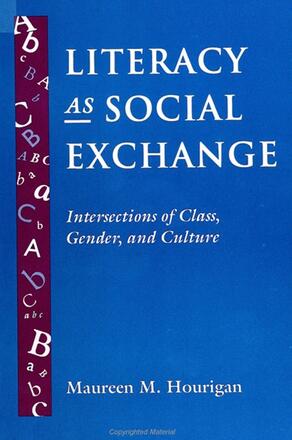
Literacy as Social Exchange
Intersections of Class, Gender, and Culture
Alternative formats available from:
Description
Literacy as Social Exchange examines the intersection of culture and literacy education. In particular, it explores the roles that class, race, ethnicity, and gender play in students' learning to negotiate the conventions of academic discourse. It argues that recent literacy scholarship has tended to isolate class, gender, and culture as discrete, marginalizing factors, but such isolation may unintentionally silence voices from non-Western, non-mainstream cultures. Writing program administrators and writing teachers who are interested in constructing programs that address the needs of all students in increasingly multicultural classrooms, will need to examine how cultural factors influence the way students learn to read, write, and think critically.
The author points out that some of the most influential scholars writing about the plight of underprivileged writers teach at some of the most exclusive institutions in the nation. These "basic writers" are not nearly so disadvantaged as many of the student writers most writing teachers encounter every day. The author explores enrollment trends in higher education that indicate conclusively that writing classrooms will soon be filled with students from non-Western, non-mainstream cuiltures. Because these students' rhetorical and literacy traditions will be unlike both those of their teachers and of the "basic writers" upon which so much literacy scholarship focuses, educators and literacy scholars need to increasingly conceptualize literacy in its larger political, social, and economic contexts.
Maureen M. Hourigan is Director of Freshman Composition at the University of Nevada, Las Vegas.
Reviews
"This book raises useful and necessary questions about the ways issues of culture have been excluded from the otherwise very socially-conscious end of composition—social constructionists and feminist and liberatory pedagogues alike. It argues for the English teacher as one who is involved in many discourses herself outside the classroom and the academy. But mainly, this book shows how composition's "social" concerns don't seem to fully consider the implications of culture. Hourigan has taken the issue out of the margins and placed it squarely in the laps of literacy educators and researchers. " — Mary Ann Cain, Indiana University at South Bend